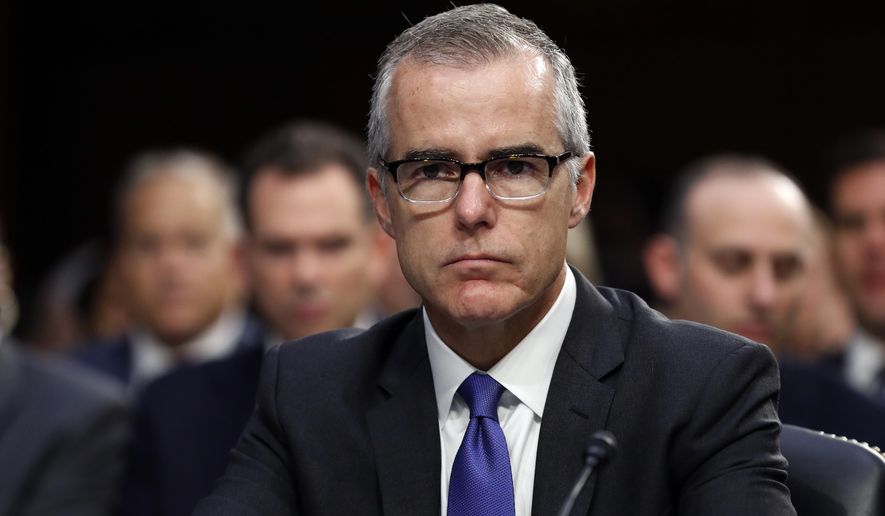The White House’s suspicions over the motives of besieged FBI Deputy Director Andrew McCabe go back at least to the first months of President Trump’s presidency.
The doubts revolved around a since-debunked February 2017 New York Times story that reported that U.S. intelligence owned numerous intercepts and phone records of Trump campaign officials communicating with Russian intelligence.
As recounted in his new book, “Media Madness,” Fox News reporter Howard Kurtz wrote that then-Chief of Staff Reince Priebus was conducting an intelligence meeting when Mr. McCabe called him aside.
“We want you to know that everything in this New York Times story is bull——,” Mr. Kurtz quotes Mr. McCabe as saying.
The White House was being pounded by the media over the story. The previous month, BuzzFeed posted the infamous Christopher Steele dossier that alleged an “extensive conspiracy” between Moscow and the Trump campaign to interfere in the 2016 election. That charge remains unproven publicly.
Mr. Priebus asked if the FBI would shoot it down. The answer came back, “No,” because then the FBI would have to start commenting on news stories.
SEE ALSO: Jeff Sessions mulling firing FBI Deputy Andrew McCabe: Report
“Give me a break,” Priebus said. “I’m getting crushed all over the place, and you won’t say publicly what you told me privately?”
What happened next raised Trump suspicions.
Suddenly CNN broadcast a story casting Mr. Priebus as the bad guy trying to convince the reluctant FBI to knock down an anti-Trump story.
Mr. Kurtz said Mr. Priebus wondered, “Had he been set up? Why was the FBI leaking this information when one of its top officials had initiated the conversation?”
The irony: In June former FBI Director James Comey testified, under questioning by Republicans, before the Senate Select Committee on Intelligence.
He said The New York Times February story was almost all wrong. When the story appeared, he said he checked with the intelligence community to make sure and then contacted congressional leaders to warn them off the report.
Mr. Priebus got his FBI shoot-down, albeit belatedly.
The New York Times eventually submitted the story to the prestigious Polk Awards as part of a 12- story package. The story helped The Times win an award for its Trump-Russia reporting.
• Rowan Scarborough can be reached at rscarborough@washingtontimes.com.




Please read our comment policy before commenting.